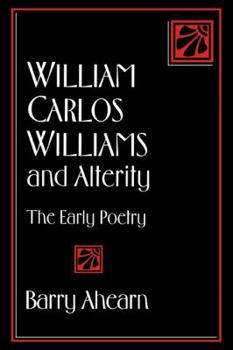William Carlos Williams and Alterity
(Part of the Cambridge Studies in American Literature and Culture Series)
Select Format
Select Condition 
Book Overview
Many critics have noticed the paradoxes and contradictions in the work of William Carlos Williams but few have analyzed them in detail. Professor Ahearn argues that Williams criticism has not gone far enough in recognizing the uses Williams saw for contradiction. He contends that Williams began to acquire his own voice as a poet when he recognized that he could be a vehicle for contending voices. His reading departs from previous examinations of the early poetry in the emphasis it places on the poems as expressions of Williams' social position. We find a Williams whose contribution to modernism came not through a radical break with tradition or a rejection of inherited poetic norms alone, but rather in a cultivation of tension, conflict, and a kind of poetic crisis that could be held forth as the metier of the modernist writer.
Format:Paperback
Language:English
ISBN:0521062101
ISBN13:9780521062107
Release Date:May 2008
Publisher:Cambridge University Press
Length:200 Pages
Weight:0.66 lbs.
Dimensions:0.5" x 6.0" x 9.0"
Customer Reviews
0 rating





